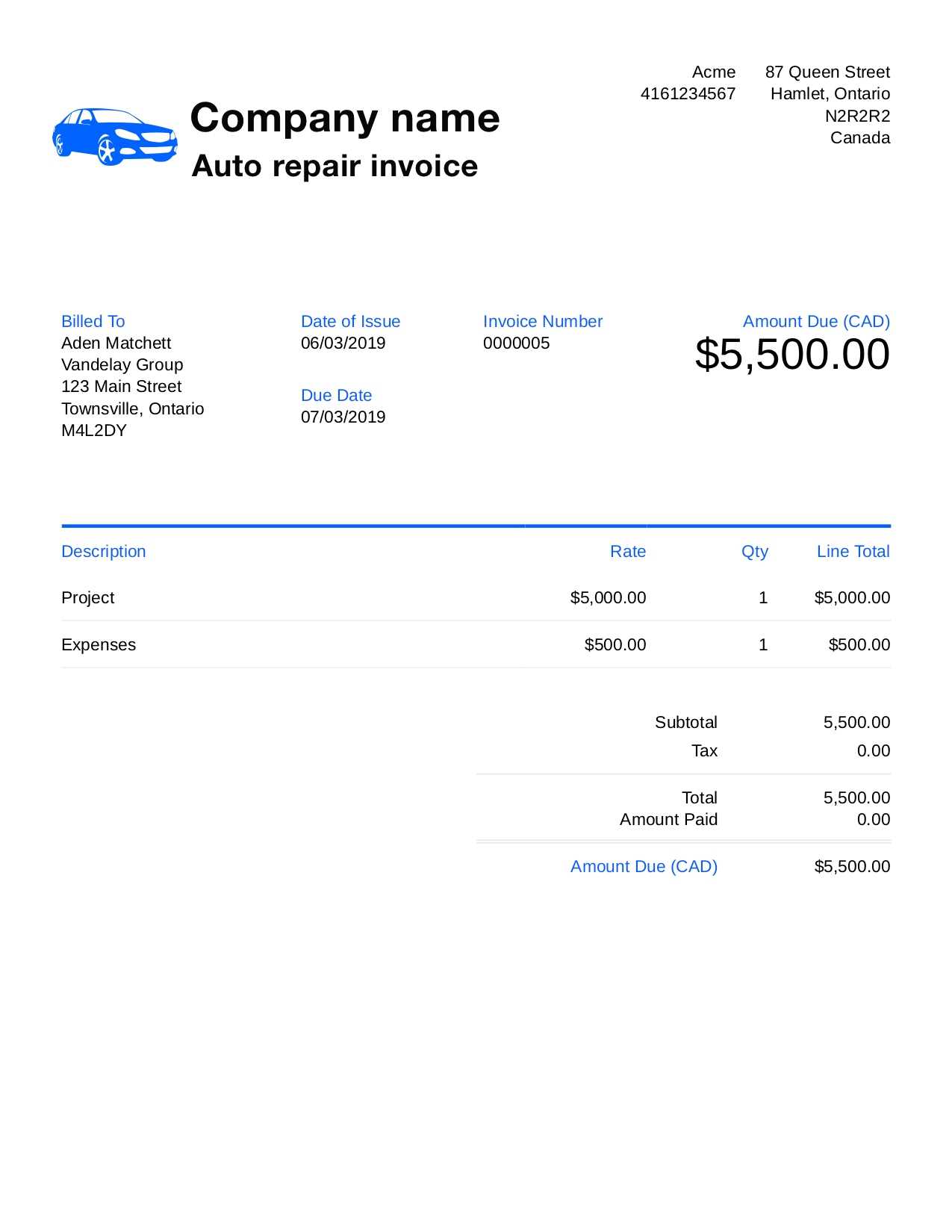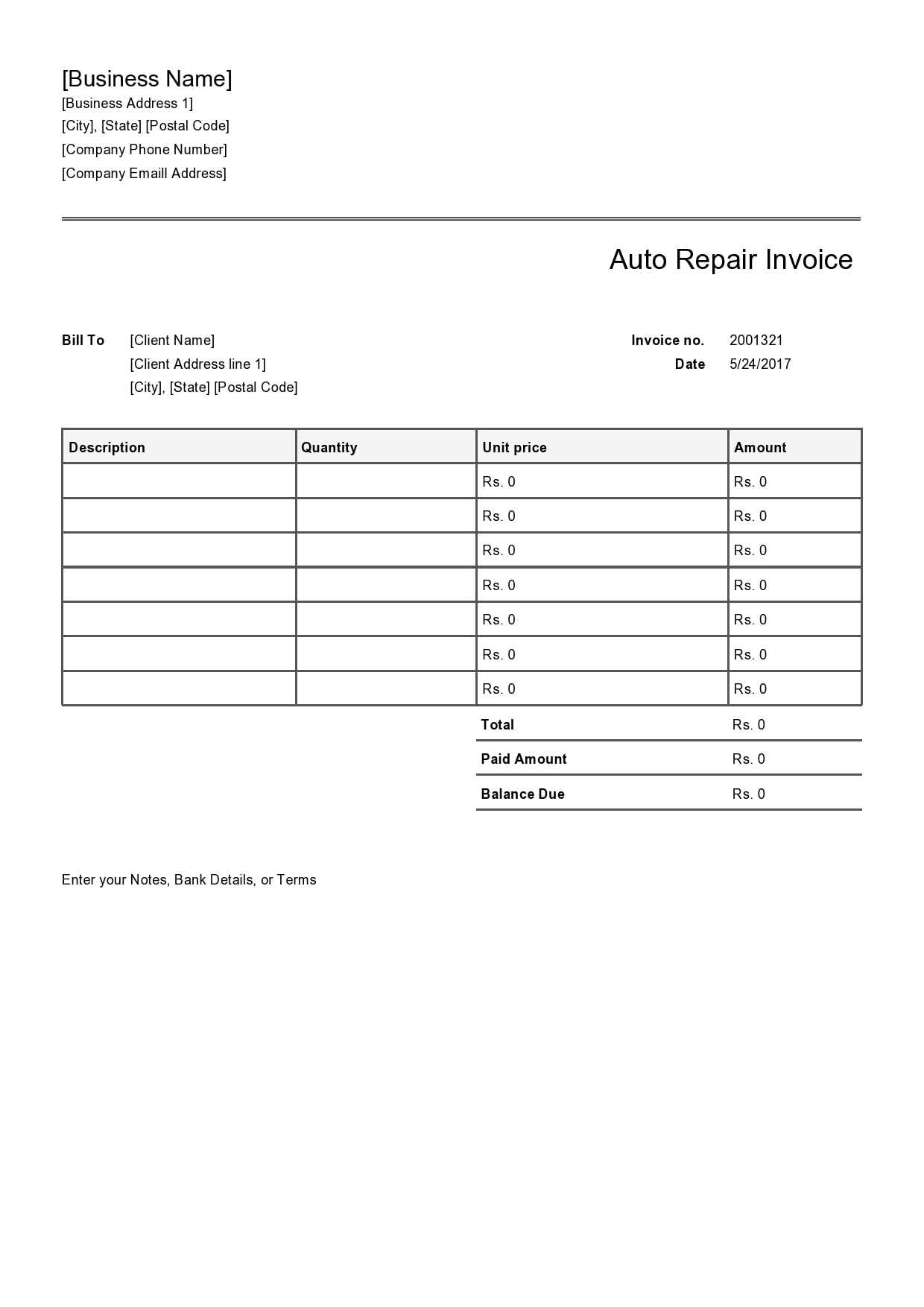Free Car Repair Invoice Template for Easy Customization
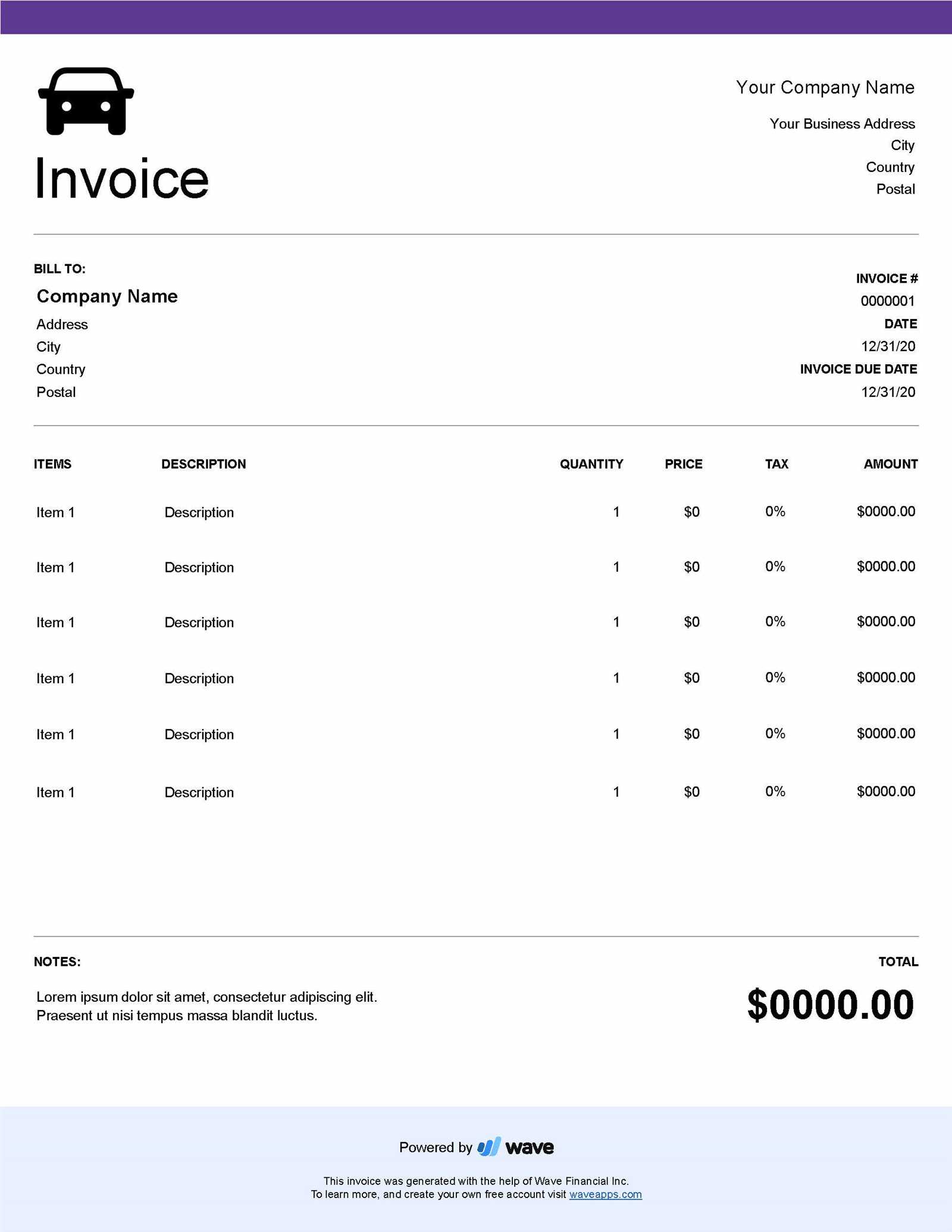
When running a business that provides vehicle services, keeping track of financial transactions and ensuring smooth payment processes is crucial. One of the most important aspects of this is having a consistent and professional approach to documenting charges. A well-structured document can help maintain clarity and prevent misunderstandings between service providers and clients.
With a ready-made solution, you can save valuable time and focus on other aspects of your work. A customizable document can easily be adjusted to fit the specific needs of your services, offering both convenience and professionalism. By using such a solution, you can streamline your operations and ensure accurate billing every time.
Utilizing these ready-to-use solutions also means you can avoid common mistakes that arise from creating documents from scratch. Whether you are managing multiple clients or just starting out, having a solid structure in place can enhance your credibility and improve client satisfaction.
Free Car Repair Invoice Template Download
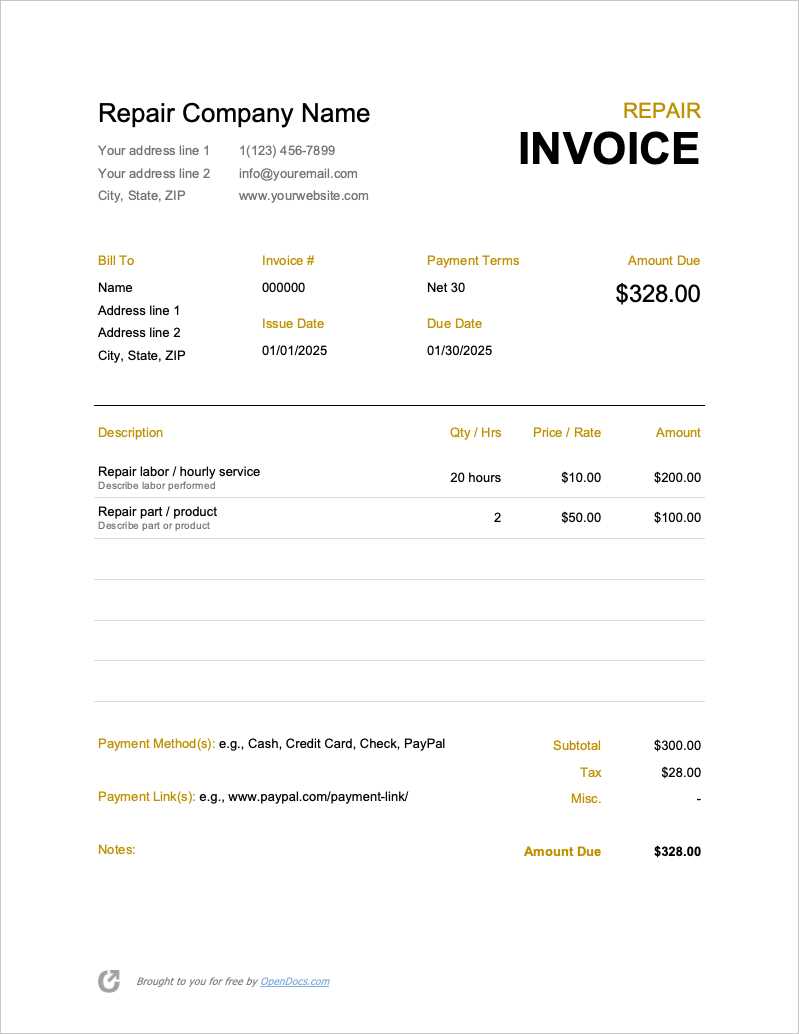
For any business offering vehicle services, having a standardized document to record payments and charges is essential for smooth operations. With a well-organized form, you can easily manage transactions, track completed jobs, and maintain professionalism in client interactions. This document can be quickly adapted to suit your specific needs, ensuring that all important details are clearly presented and easy to understand.
By using a pre-designed option, you can eliminate the need for creating documents from scratch, saving valuable time and reducing the risk of errors. The structure allows you to input all the relevant information, including service descriptions, pricing, and payment terms. Whether you’re a small business owner or an individual service provider, this solution is ideal for simplifying your billing process.
Below is an example of what such a document might include:
| Description of Service | Quantity | Unit Price | Total |
|---|---|---|---|
| Oil Change | 1 | $30.00 | $30.00 |
| Brake Inspection | 1 | $50.00 | $50.00 |
| Labor | 2 hours | $40.00 | $80.00 |
| Total | $160.00 | ||
Download your document today and start streamlining your billing process, ensuring that every transaction is documented clearly and professionally.
How to Create a Custom Invoice
Creating a personalized document to record transactions and services is a key step in managing a business effectively. By customizing a standard form to fit the specific needs of your business, you can ensure that every detail is captured, making it easier to manage payments and communicate with clients. The process is straightforward and involves just a few essential steps to make sure all important information is included.
Step 1: Gather Necessary Information
The first step is to collect all the details needed for your document. These typically include the service description, costs, the customer’s information, and the payment terms. Having everything on hand will ensure the document is complete and accurate, minimizing the chance of errors.
Step 2: Structure Your Document
Once you have all the necessary details, you can begin organizing the document. A well-structured format is essential for clarity and professionalism. Here is an example of what the layout might look like:
| Description of Service | Quantity | Unit Price | Total |
|---|---|---|---|
| Oil Change | 1 | $30.00 | $30.00 |
| Brake Inspection | 1 | $50.00 | $50.00 |
| Labor | 2 hours | $40.00 | $80.00 |
| Description of Service | Quantity | Unit Price | Total |
|---|---|---|---|
| Oil Change | 1 | $30.00 | $30.00 |
| Brake Inspection | 1 | $50.00 | $50.00 |
| Labor | 2 hours | $40.00 | $80.00 |
| Total | $160.00 | ||
By applying these best practices, you can ensure that your documents are professional, easy to read, and effective at conveying essential
Tips for Efficient Invoicing
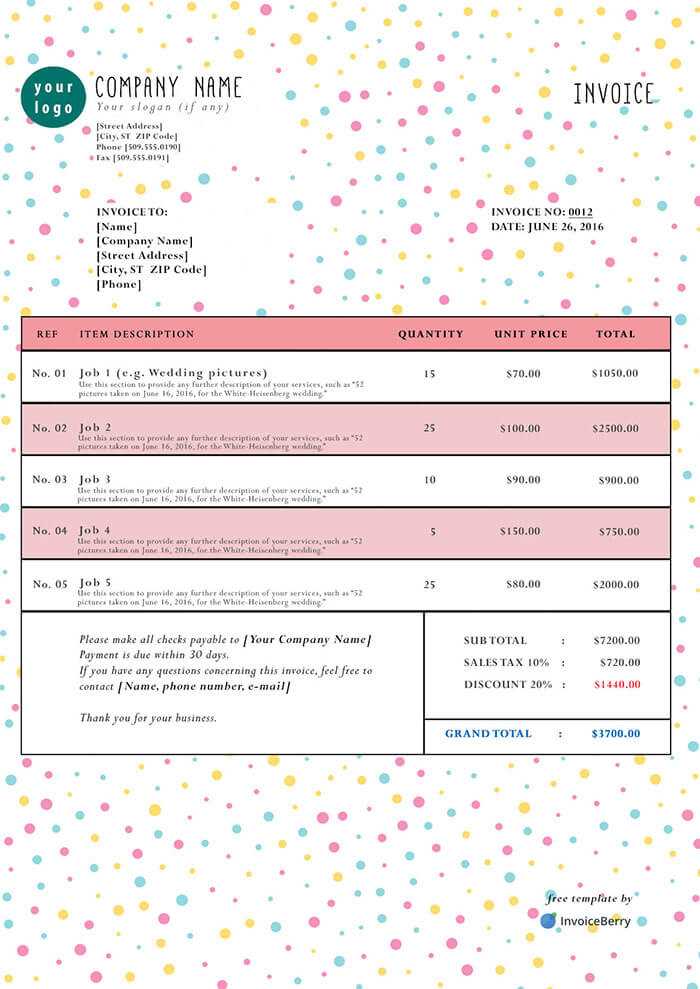
Managing financial records and ensuring timely payments are crucial to any business’s success. Streamlining the process of creating and sending payment requests can help reduce administrative burdens and improve cash flow. By adopting certain strategies and tools, you can make the entire process smoother, quicker, and more reliable.
Here are some tips to enhance the efficiency of your billing process:
- Automate Where Possible: Use automated tools or software to generate documents quickly. This minimizes human error and saves valuable time.
- Be Clear and Detailed: Provide a comprehensive breakdown of services, rates, and totals. This ensures there is no ambiguity regarding what the client is being charged for.
- Set Clear Payment Terms: Make your payment terms clear and easy to find. Include due dates, accepted payment methods, and any penalties for late payments.
- Use Consistent Formats: Keep the structure of your payment requests uniform across all documents. This helps both you and your clients stay organized.
- Send Invoices Promptly: Issue payment requests as soon as the service is completed. The sooner you send it, the faster you are likely to receive payment.
By following these tips, you’ll ensure that your financial transactions are handled efficiently, improving both your operational workflow and client relationships.
How to Edit and Customize Your Invoice
Adapting a standard billing document to suit your business needs is an essential skill. Customizing this document allows you to reflect your brand identity, ensure clarity, and meet specific customer requirements. Whether you want to add a logo, change the color scheme, or adjust the layout, the ability to modify and personalize your document is key to maintaining a professional appearance and smooth transactions.
Adjusting Key Details
When personalizing your document, the first step is to ensure that all relevant business and client details are correct. This includes names, addresses, and contact information. Additionally, you may want to include a reference or job number for easy identification.
Customization options:
- Business name, address, and logo
- Client details and contact information
- Unique reference or job number
Modifying the Layout
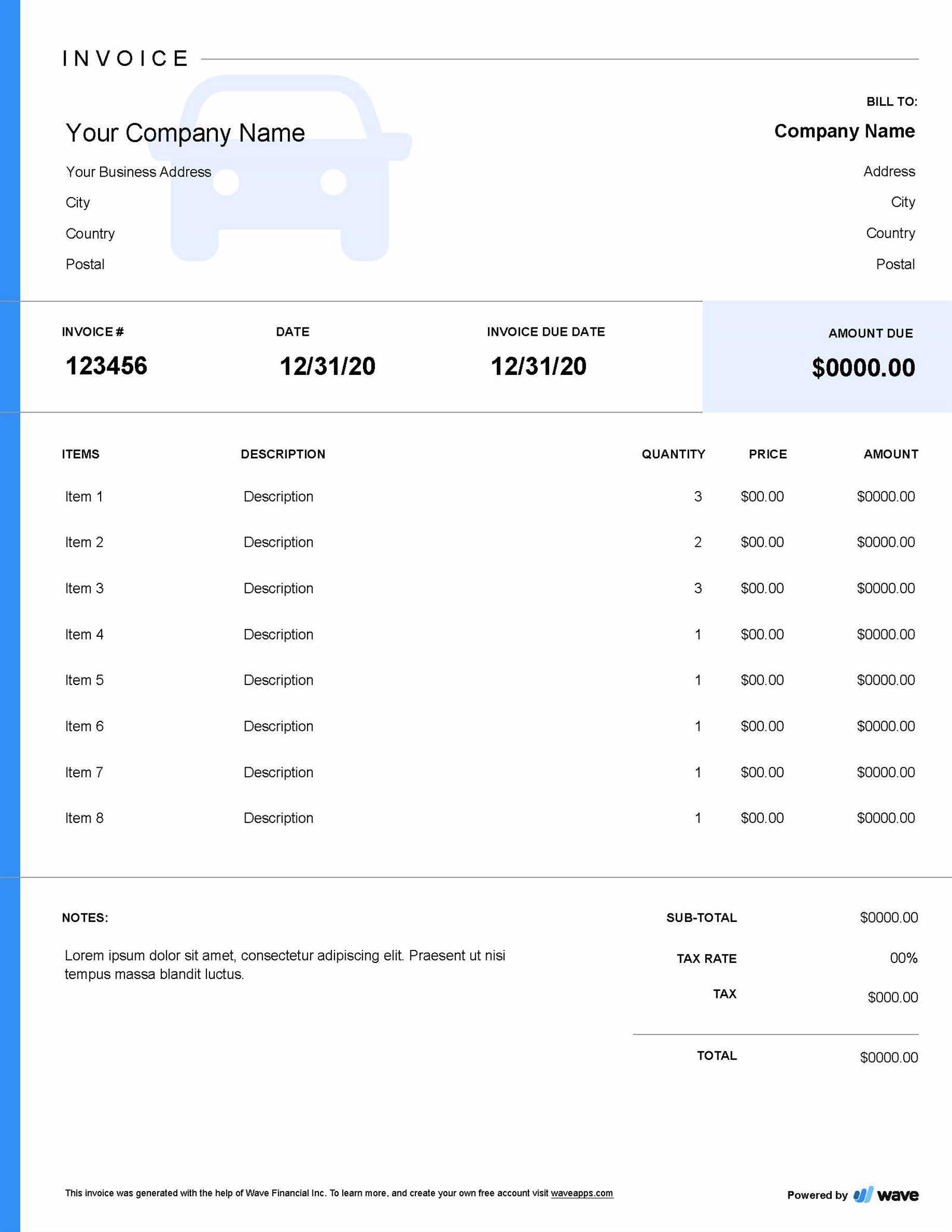
The layout of your document can be adjusted to better suit your brand style and improve readability. Consider changing fonts, adjusting the alignment of text, and incorporating color schemes that match your company’s branding. Keep in mind that the most important information, such as totals and payment terms, should be easily noticeable.
Key design elements to modify:
- Font size and style
- Text alignment and formatting
- Color scheme
- Spacing and layout for better readability
By following these steps, you can ensure that your billing documents are not only functional but also reflect your professional brand and cater to specific client needs.
Tracking Payments with Invoice Templates
Effective financial tracking is crucial for maintaining a smooth cash flow and managing business operations efficiently. One of the key aspects of managing payments is keeping track of which transactions have been completed and which are still pending. A structured document can help organize this information and provide clear visibility into the status of each payment, making it easier to follow up and ensure that all amounts are collected promptly.
Organizing Payment Status
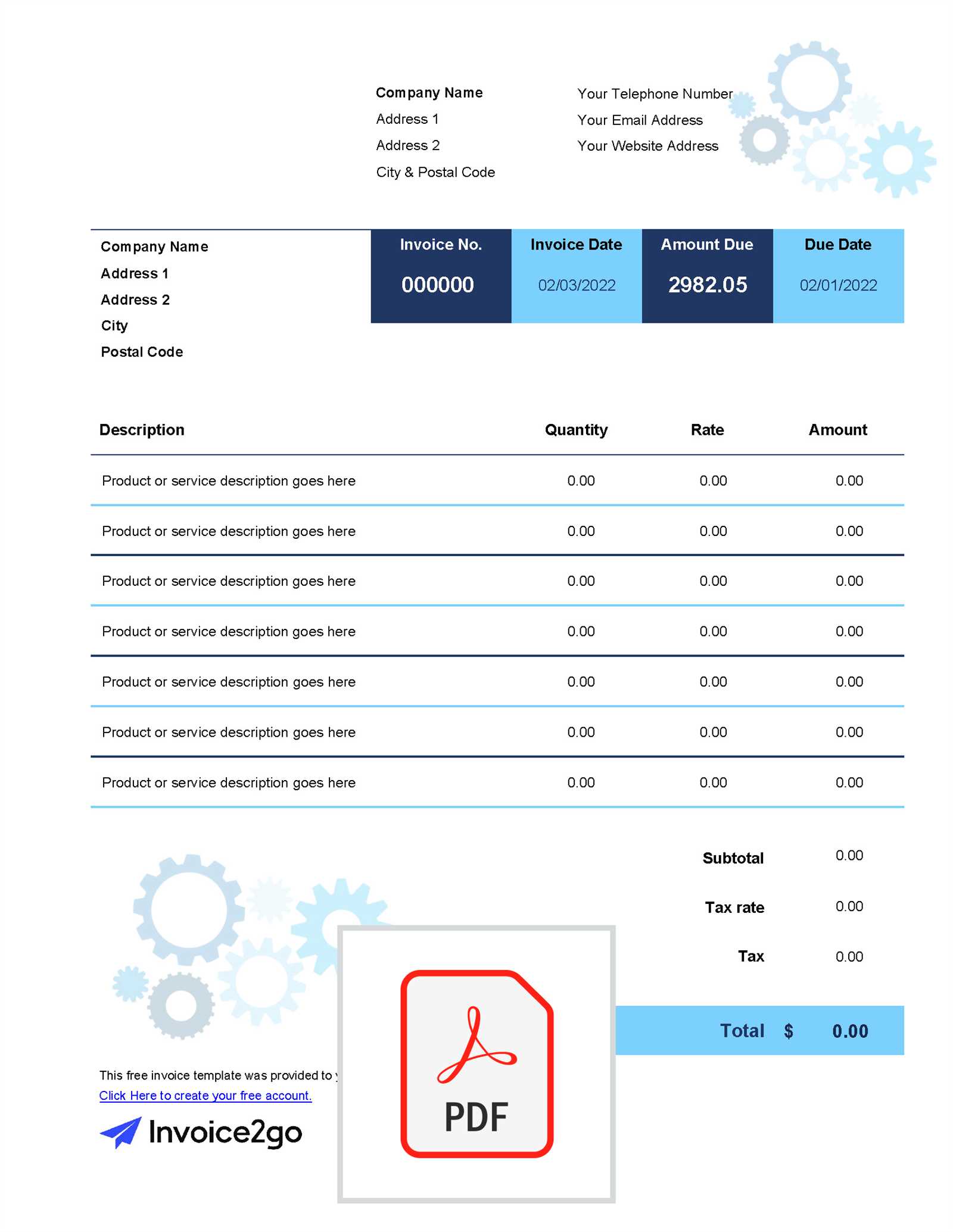
By incorporating a section for payment status, you can quickly determine whether a payment has been made, is overdue, or is pending. This helps to streamline the accounting process and ensures that nothing is overlooked. Include columns to mark the date payments are received and any notes for partial payments or adjustments.
| Description | Amount | Status | Payment Date |
|---|---|---|---|
| Engine Oil Change | $50.00 | Paid | 2024-10-05 |
| Brake Pad Replacement | $120.00 | Pending | N/A |
| Labor Charges | $40.00 | Paid | 2024-10-06 |
Automating Payment Reminders
Automating reminders for overdue payments can save valuable time. You can set up reminders that are triggered automatically based on the due date, helping to reduce the chances of missing a payment or forgetting to follow up. This can be especially helpful for long-term clients or large projects where payments may be split across multiple installments.
By effectively tracking payments, you can ensure a more organized and efficient billing process, reducing administrative time and keeping your finances on track.
What Information Should be Included
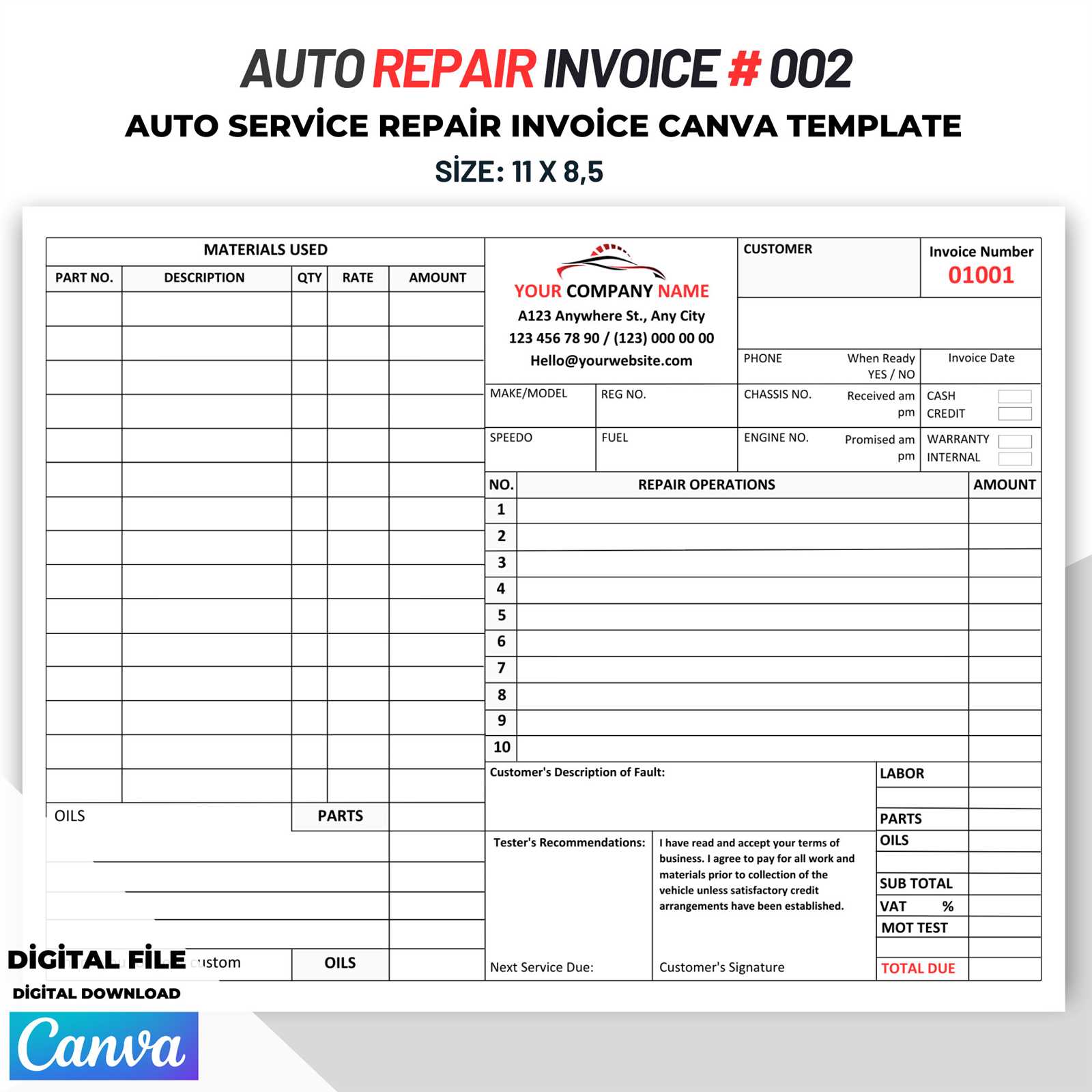
When creating a document for billing purposes, it is essential to ensure that all necessary details are clearly presented. This allows both the service provider and the client to fully understand the charges, payment terms, and specific services rendered. Including the right information helps avoid misunderstandings and ensures smooth transactions.
Basic Business and Client Details
First and foremost, make sure to include the complete details of both the service provider and the client. This includes full names, addresses, and contact information. Providing this information helps identify who is involved in the transaction and facilitates communication if needed.
- Business name, address, and contact details
- Client name and address
- Unique identification or reference number
Service Description and Pricing
Next, it’s important to list the services provided, along with their corresponding prices. A clear breakdown of each task or item ensures transparency and allows the client to see exactly what they are being charged for. Be sure to list each item separately, and provide the cost for each one along with the total amount.
- Description of services rendered
- Unit price and quantity (if applicable)
- Total cost for each service
Additional Information: It’s also helpful to include any applicable taxes, discounts, or adjustments to the final amount. Clearly showing the payment due and specifying payment terms, such as the due date, will help avoid any confusion or delays.
By ensuring that all relevant details are included, you create a comprehensive and easy-to-understand document, enhancing professionalism and improving payment clarity.
How to Save Time with Templates
Time efficiency is crucial in any business, and streamlining repetitive tasks can lead to significant savings. One of the best ways to speed up administrative processes is by using pre-structured documents. These ready-made forms allow you to quickly fill in the necessary details without having to start from scratch each time, making your workflow smoother and faster.
Benefits of Using Pre-Structured Documents
When you use a ready-made format, the layout and essential sections are already in place. You only need to focus on updating specific information, such as dates, amounts, and customer details. This helps you avoid unnecessary formatting time and reduces the chances of making mistakes.
- Pre-designed sections for easy data entry
- Consistent and professional presentation
- Eliminates repetitive formatting tasks
Time-Saving Features to Look For
Look for ready-made forms that offer easy customization options, so you can adapt them to your specific needs quickly. Key features to consider include drop-down menus for standard items, automatically calculating totals, and the ability to save and reuse previous entries.
- Customizable fields for quick edits
- Automatic calculation of totals and taxes
- Ability to store and reuse data
By using structured documents, you can save valuable time while ensuring accuracy and consistency in your business operations.
Common Mistakes to Avoid in Invoices
Creating accurate and professional billing documents is essential for maintaining good client relationships and ensuring timely payments. However, there are several common errors that can lead to confusion, delays, or disputes. Being mindful of these mistakes can save you time and prevent unnecessary issues.
Incorrect or Missing Contact Information
One of the most basic yet critical mistakes is failing to include complete and correct contact details for both parties. Without accurate information, clients may struggle to reach you for questions or clarifications, which can lead to delays in payment. Always ensure that names, addresses, phone numbers, and email addresses are correctly listed.
- Double-check both your and your client’s details.
- Ensure that email addresses and phone numbers are correct.
Omitting Payment Terms or Due Dates
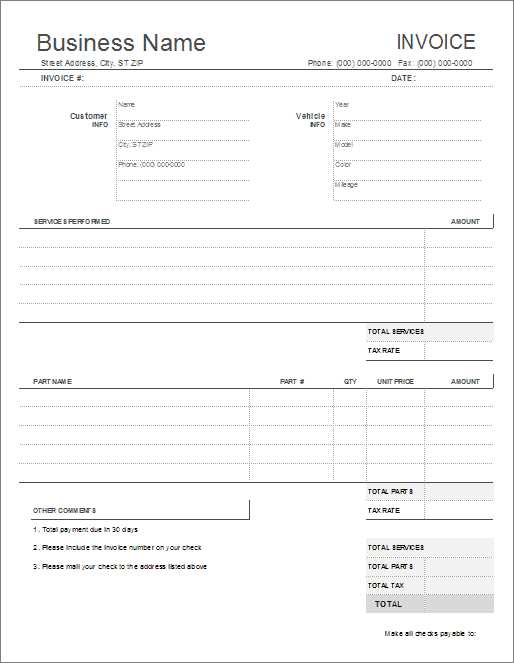
Not specifying the payment terms clearly can lead to confusion or missed deadlines. Clients need to know when payment is expected and any penalties for late payments. Always include a due date and a clear statement about payment expectations (e.g., net 30, net 60).
- Include the payment deadline to avoid delays.
- Clarify the payment method and any additional charges.
Errors in Pricing or Calculations
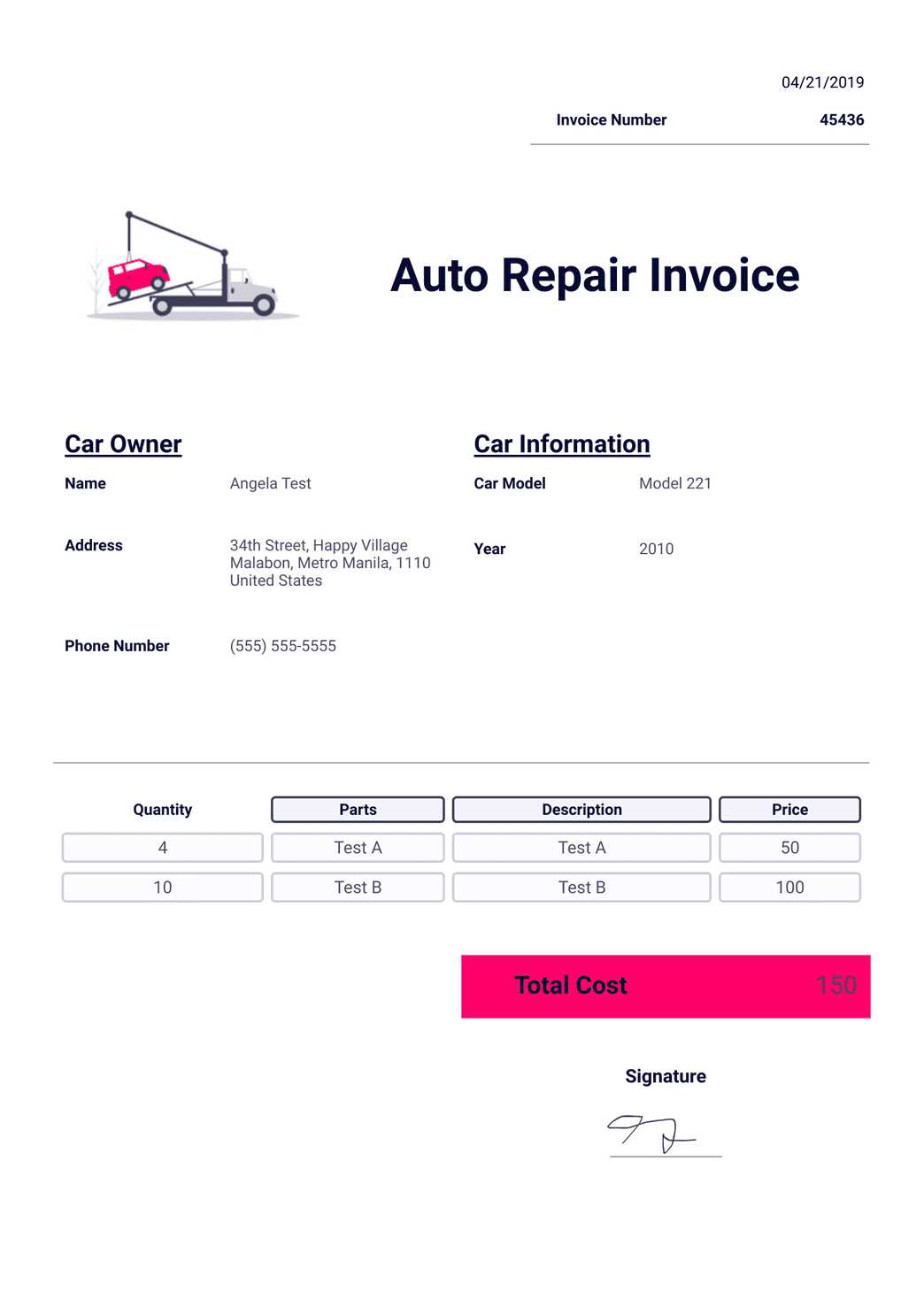
Another common issue is errors in pricing, quantities, or calculations. These mistakes can cause frustration for your clients and may lead to disputes. Always double-check the prices and ensure that totals are correct before finalizing the document.
- Verify unit prices and quantities before calculation.
- Use automated tools or formulas to reduce human error.
In Summary: Small errors in your documents can have a big impact on your business. By ensuring accuracy and clarity, you can avoid confusion, build trust with your clients, and streamline the payment process.
How to Print or Email Invoices
Once your billing document is ready, it’s important to know how to efficiently deliver it to your client. Whether you choose to print a physical copy or send it digitally, there are simple steps to ensure your document is presented clearly and professionally. Below, we’ll explore how to print or email your completed billing document.
Printing Your Document
For clients who prefer physical copies, printing your document is an essential step. Ensure that your document is formatted correctly to avoid any misalignments or truncation when printed. It’s also a good idea to print a test page first to confirm everything looks as expected. Once you are satisfied, simply select the print option from your preferred software and choose the printer settings that best suit your needs.
- Ensure proper formatting for printing.
- Print a test page before the final version.
- Check margins and alignment before printing.
Emailing Your Document
Emailing your document is often the most efficient method for sending bills. You can attach your completed document as a PDF or other file type and send it directly to your client’s email address. Make sure to include a brief, polite message in the body of the email, referencing the attachment and any important details. Always double-check the recipient’s email address to avoid sending it to the wrong person.
- Save your document as a PDF for easy sharing.
- Double-check the email address for accuracy.
- Include a clear subject line and message in the email.
By following these simple guidelines, you can ensure that your document reaches your client in a professional manner, whether through print or email.
Legal Considerations for Billing Documents
When creating and issuing billing documents, it’s important to understand the legal implications that come with them. These documents are not only a record of transactions but also serve as binding agreements between the service provider and the client. Certain elements must be included to ensure that your documents are legally compliant and that both parties’ rights and obligations are clearly outlined.
Key Legal Elements to Include
To protect yourself and your clients, certain legal details should always be part of the document. These may vary depending on the nature of the service, but here are some common elements that help maintain legal clarity:
| Element | Description |
|---|---|
| Payment Terms | Clearly define when payments are due and what penalties apply for late payments. |
| Service Details | Provide a detailed description of services provided, including pricing, to avoid disputes. |
| Tax Information | Include applicable taxes, whether local or state, and how they affect the total amount. |
| Signatures | If applicable, both parties should sign to confirm agreement to the terms outlined. |
Compliance with Local Laws
In addition to including the essential elements, it’s also important to ensure compliance with local laws and regulations regarding transactions and billing practices. Different regions or countries may have specific requirements, such as particular tax rates, document retention rules, or payment practices. Always research local legislation to make sure your billing documents meet legal standards.
By understanding and adhering to these legal considerations, you help protect both yourself and your clients, fostering a transparent and trustworthy business relationship.
Where to Find More Free Templates
When looking for customizable documents, many reliable online resources provide various designs and formats that can be tailored to suit specific needs. These sources allow users to easily find the right structure, making document creation more efficient and accessible.
Popular Online Platforms
There are several websites and platforms where you can find various document formats, ready to be personalized:
- Microsoft Office Templates: Offers a wide range of formats, from simple records to more detailed documents, all customizable in Word or Excel.
- Google Docs: A cloud-based platform where you can access various layouts, which can be edited and saved directly online.
- Template.net: Provides multiple pre-designed documents suitable for business use, including the ability to download templates in various formats.
- Canva: Known for its design flexibility, Canva allows you to create and modify documents with easy-to-use graphic elements.
Searchable Databases for Specific Needs
If you are looking for more specific document formats for particular industries or services, there are specialized resources available:
- Legal and Business Websites: Many websites related to legal and business services provide downloadable forms that meet regulatory requirements.
- Freelance Platforms: Websites like Upwork and Fiverr sometimes offer free or low-cost templates tailored to freelance professionals.
- Accounting Software Providers: Some companies that provide accounting tools offer free document templates as part of their service package.
By utilizing these resources, you can save time and ensure the accuracy of your documents, giving you more flexibility to focus on other important aspects of your work.
